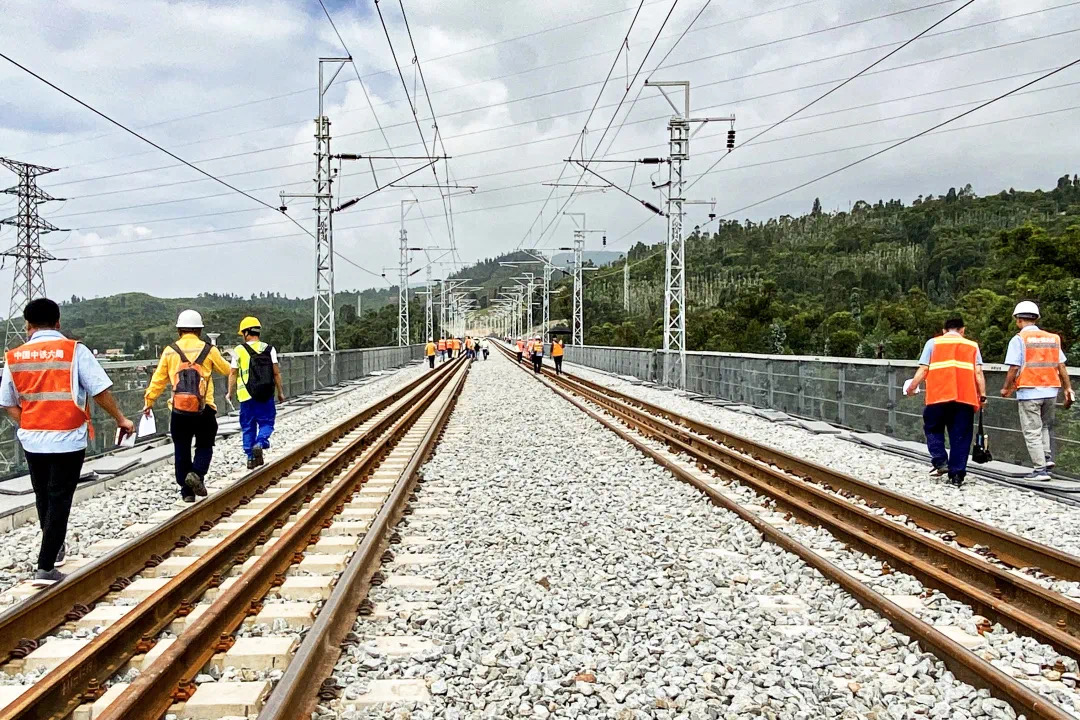Rail project putting Laos on fast track to growth
As a railway connecting Laos with China nears completion, experts say the showpiece infrastructure project will play a crucial role in improving the country's connectivity and aid its economic recovery after the pandemic.

"By completing the project on schedule despite the pandemic, this is going to help a lot for Laos' post-pandemic recovery and this can promote trade, investment and tourism," said Phouphet Kyophilavong, associate professor and dean of the Faculty of Economics and Business Management at the National University of Laos in the capital Vientiane.
Noting that COVID-19 infections have remained low in Laos despite a recent outbreak, Phouphet said the China-Laos Railway-scheduled to be completed in December-is expected to help strengthen Laos' cooperation with China and other countries in the region that have managed the pandemic relatively well.
Work on the Phonethong super bridge, at more than 7.5 kilometers long with 231 support piers, was completed on July 5, according to China News Service. It is the longest bridge on the rail line. In August, a trial run of the railway will be conducted, according to the Vientiane Times.
Xiao Qianwen, general manager of Laos-China Railway Co, a joint venture for the project's construction and operation based in Vientiane, was quoted by Xinhua News Agency as saying the company is striving to complete construction on Dec 2, the Laotian National Day.
Xiao pointed to the progress made despite most of the construction sites being in mountainous areas, resulting in complex geological conditions for the work.
The railway, which will be Asia's longest outside China, is a major project under the Belt and Road Initiative, and dovetails with the Lao government's plan to transform the landlocked country into a land-linked hub.
It stretches more than 1,000 kilometers from Kunming in China's Yunnan province to Vientiane. It is expected to slash the travel time between the two cities to less than one day when completed, according to China State Railway Group.
Transport costs
The Lao section, which links the Boten border gate in northern Laos with Vientiane, covers more than 410 km, with trains expected to travel at up to 160 km per hour. It will cut transport costs by 30-40 percent compared with those for road travel, the project's backers say. The China section in Yunnan province entered the static acceptance stage on Sunday after construction was finished.
Noting that Laos is one of 32 landlocked developing countries in the world and the only one in Southeast Asia, Sandra Seno-Alday, a lecturer of international business at the University of Sydney Business School, said the railway will be an important piece of infrastructure that increases the nation's transport connectivity with other parts of the region.
"Landlockedness has been identified as a really big challenge to economic development, simply because about 90 percent of world trade is done by sea," Seno-Alday said.
Valy Vetsaphong, an adviser to the Lao prime minister and vice-president of the Lao National Chamber of Commerce and Industry, said: "The Laos-China Railway will lay a new foundation for the introduction of foreign investment, and Laos will surely take the advantage to participate in the regional and global industrial chain.
Seno-Alday said the Lao government has also done "an excellent job" of establishing policies to support trade.
Litthikay Phoummasak, president of the Small and Medium Enterprise Promotion Association of the Lao PDR, said he expects the railway to create more business opportunities for companies in Laos and beyond.